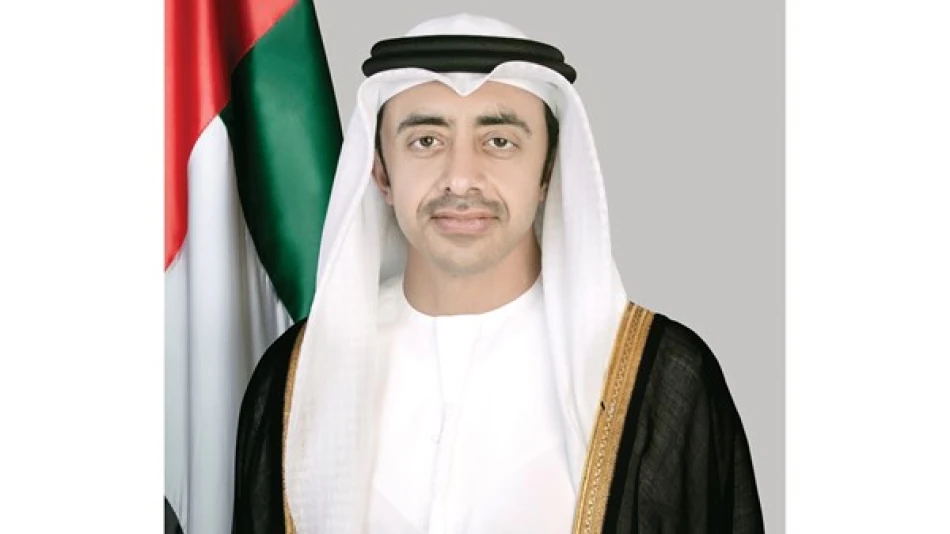
UAE's Unwavering Support: Abdullah bin Zayed Pledges Continued Aid Delivery to Gaza under President's Leadership
UAE Doubles Down on Gaza Aid Delivery Despite Regional Tensions
The United Arab Emirates has intensified its humanitarian efforts in Gaza, delivering aid through 143 trucks and four airdrops over just four days, signaling the Gulf nation's commitment to maintaining a delicate balance between regional diplomacy and humanitarian imperatives. Foreign Minister Sheikh Abdullah bin Zayed Al Nahyan's announcement underscores the UAE's strategy of leveraging soft power while navigating complex Middle Eastern geopolitics.
Sustained Humanitarian Campaign Amid Conflict
The UAE's latest aid surge represents more than routine humanitarian assistance—it reflects a calculated diplomatic approach during one of the region's most volatile periods. The combination of ground convoys and aerial deliveries demonstrates operational flexibility designed to overcome logistical challenges that have hampered other international relief efforts.
Sheikh Abdullah bin Zayed's emphasis on "unwavering commitment" suggests the UAE views this humanitarian role as central to its broader regional strategy, particularly as other Gulf states have taken varying approaches to the Gaza crisis.
Strategic Positioning in Middle Eastern Diplomacy
Balancing Act with Regional Partners
The UAE's sustained aid delivery occurs against the backdrop of its normalized relations with Israel through the Abraham Accords, creating a unique diplomatic position. Unlike Qatar, which has served as a mediator with Hamas, or Saudi Arabia, which has maintained distance from direct involvement, the UAE appears to be carving out a humanitarian-focused role that allows it to maintain relationships across the regional divide.
This approach mirrors the UAE's broader foreign policy evolution since 2020, where economic pragmatism and humanitarian leadership have replaced more confrontational stances of previous decades.
Operational Implications for Aid Delivery
The mention of both truck convoys and airdrops indicates sophisticated logistics coordination, likely requiring clearances from multiple parties including Israel, Egypt, and Palestinian authorities. This operational complexity suggests the UAE has developed significant diplomatic capital and technical capabilities for humanitarian operations in contested territories.
The four-day timeframe for such substantial aid delivery—143 trucks represents a considerable logistical achievement—indicates pre-positioned resources and established delivery mechanisms that could be scaled further if needed.
Regional Context and Future Implications
The UAE's humanitarian emphasis comes as Gulf states increasingly compete for influence through soft power rather than military intervention. While Saudi Arabia focuses on Vision 2030 and economic transformation, and Qatar leverages its World Cup legacy and mediation capabilities, the UAE appears to be positioning itself as the region's premier humanitarian responder.
This strategy serves multiple purposes: maintaining credibility with Palestinian populations, demonstrating responsible leadership to Western partners, and preserving flexibility in future peace negotiations. The "unwavering commitment" language suggests this approach will continue regardless of immediate political developments, potentially making the UAE an indispensable humanitarian corridor for Gaza's 2.3 million residents.
For regional observers, the UAE's sustained aid delivery represents a masterclass in diplomatic positioning—maintaining humanitarian leadership while preserving strategic relationships across a fractured Middle Eastern landscape.
Most Viewed News

 Layla Al Mansoori
Layla Al Mansoori






